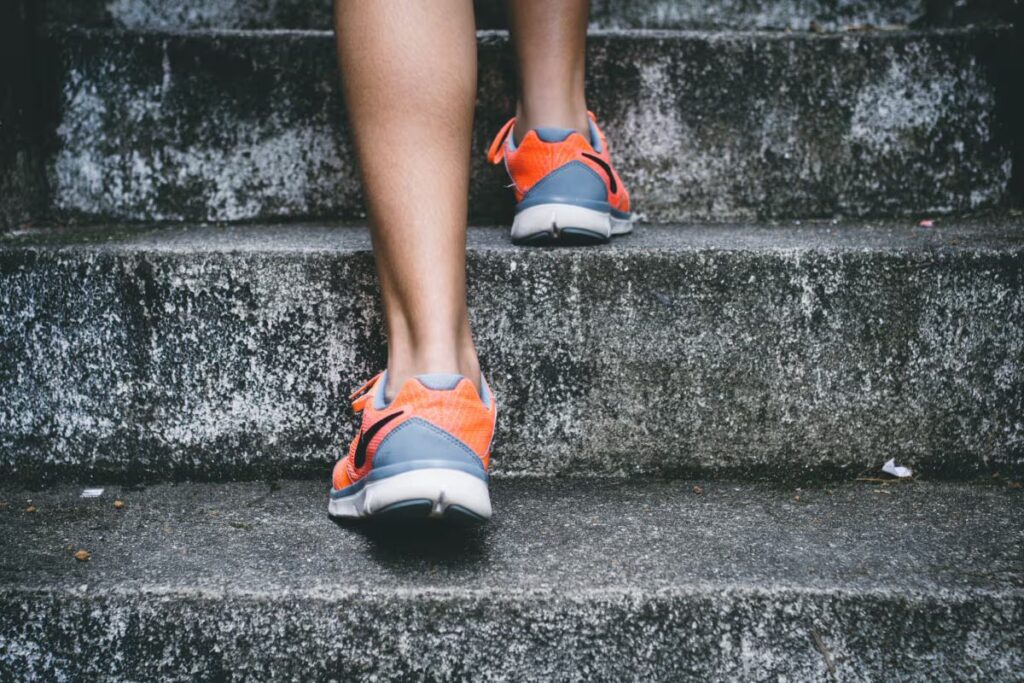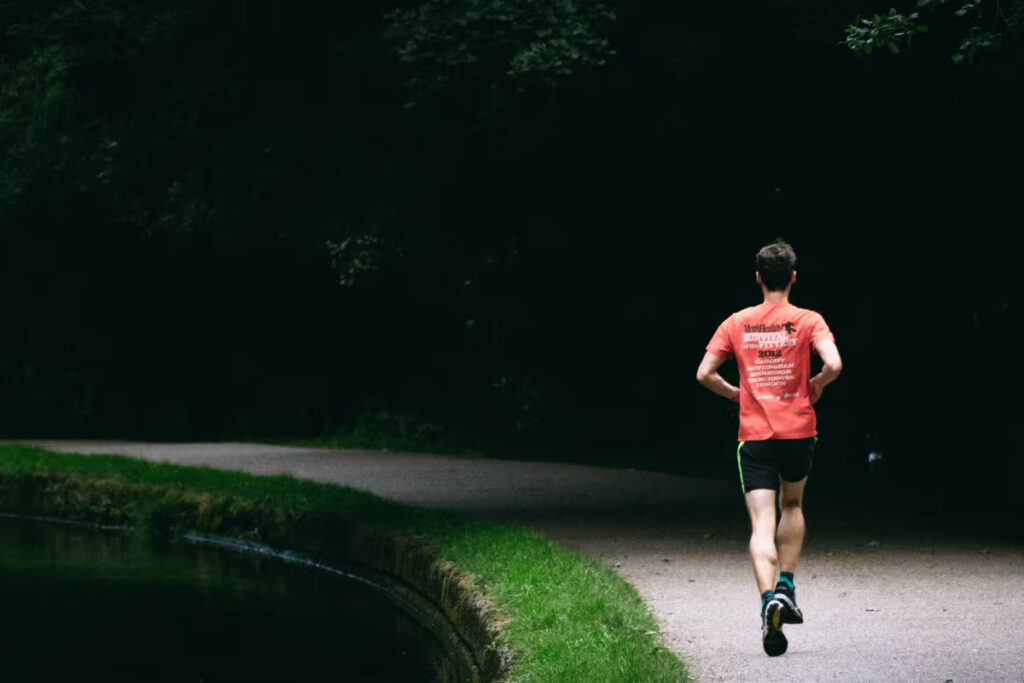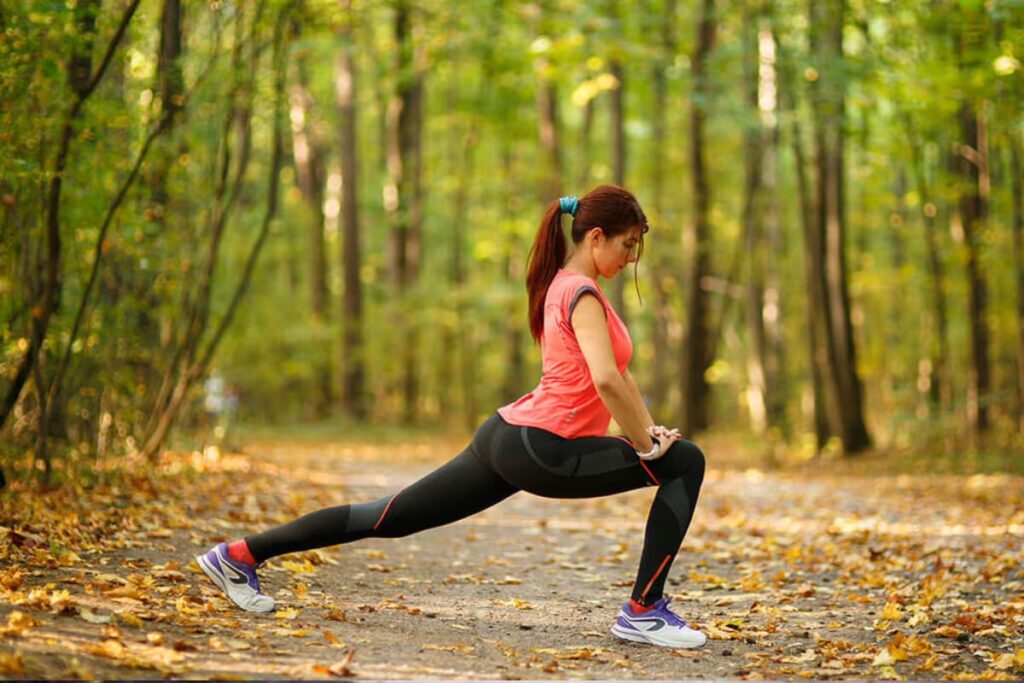What are the Benefits of Running in the Morning, and Should You Do It?
We’ve all read the stories of people who wake up in the early hours of the morning, lace up their trainers, and head for the track. And we’ve heard them because those lovers of jogging won’t ever stop talking about the benefits of running in the morning.
Whether it’s about how much it helps them wake up or how it helps to start the day on a more positive note, the benefits of jogging in the morning are probably something you’ve heard about during at least one TED talk.
But how many of those morning-run benefits exist? And are they always worth the early wake-up? In this article, we will talk about whether running every morning is necessary and the true benefits of early morning run while also discussing the inevitable drawbacks.
And so, without wasting any more time, let’s get started.
Benefits of Running in the Morning include finding time for yourself, getting out in nature, and freeing up time in the evening. For busy professionals, they’re a terrific way to get some exercise in while getting energized for the day.

Benefits of Running in the Morning You Should Know
When it comes to early-hour workouts, we often get asked, “Should I run in the morning?” or “How long should you run in the morning?” and that’s all mainly because people have heard about the benefits of starting your day with a run and want exactly what they have to do, in order to get them.
In reality, however, there are only a few benefits of running in the morning that you should really care about. Let’s see what they are.
✅ Energizes You for the Day Ahead
If you’re naturally a morning person, starting your day with a run will help wake you up even quicker and give you that boost of endorphins to continue being productive throughout the day.
By getting out the door quickly and starting to move out in the fresh air, you make your body get out of that zombie, sleepy mode quickly, and by the time you return home, your brain is already working at full capacity, and you’re ready to tackle the next tasks.
✅ Great Mental Break
When it comes to mental health, running in the morning is excellent for several reasons. First, it allows you to spend time outdoors and near nature, which always gives peace of mind and clarity.
Second, it gives you that much-needed alone time – a few minutes to an hour where you’re completely in your own thoughts and feelings, when you get to go over everything that’s currently going on in your life, and when you get to rest from having people depend on you.
Finally, we all know that exercise releases endorphins and thus helps us get into a better mood. And so, if your main question was, “is running in the morning good?” then the answer is clear.

✅ It Frees up Your Evening
Most of us are quite busy, and the thought of having to go work out after a long, tedious day at work is simply unbearable for most. Not to mention that when you already have a family missing out on time with your loved ones in order to get a training session is not always the best decision. Because of that, early morning runs are a great way to get in your daily exercise while still sharing your evening hours with friends or family or simply doing something else you enjoy.
Drawbacks of Running in the Mornings
Of course, running in the early hours of the day is not all sunshine, rainbows, and songs. There are some drawbacks to doing this kind of training, especially if you’re planning on going for a run every single morning.

❌ Getting Sore Early
Another con of working out early is that you can get sore, and you might feel it for the entire day after. That means barely being able to walk up the stairs of your office and overall feeling tired and sleepy, especially in the afternoon hours. Additionally, if you are working a more stationary kind of job, your body will definitely not love the fact that it’s unable to get the blood flowing and stretch around.
❌ Getting Less Sleep
One of the main problems of running in the morning is the amount of sleep you’re getting. Most adults typically go to bed around 11 pm, sometimes later, and if your wake-up call is at 5-6 am the next day, then that certainly means you’re barely getting enough sleep. And while doing that will be completely okay for a day or two once you go a full week of not getting enough sleep. And if you’re a night owl that typically likes staying up late, then the whole morning run situation might be even more problematic.

❌ Conditions in the Morning Are Harsher
Usually, conditions in the early hours of the morning can present a few challenges for runners. First and foremost, if you live somewhere, there is winter and autumn, the early morning hours will likely be dark. Along with that, it may also be cold, a lot colder than during the evenings or even during the afternoon hours.
The Difference Between Running in the Morning, Afternoon, and Evening
Now you might be wondering whether there’s any massive difference between working out in the morning, afternoon, or evening. After all, you’re still doing the same amount of work and the same movement, so why would there be any difference, right? Well, the reality is that there are slight differences depending on the time of the day you’re running.

1. Difference in Energy
While motivating yourself to go on a run is a difficult task at any time of the day, in the morning, you will typically have less energy, and thus, you won’t be able to run as fast or for as long. The fact is, most runners find that they’re able to show better running performances in the evening or in the afternoon simply because by that time of the day, they’re already awake, they’ve had a few meals, and so there is more energy available for the run.
2. Effect on Sleep
Running in the morning has been shown to affect your sleep schedule positively. Not only does it force you to go to bed early, but it also helps you fall asleep faster (as you’re tired from the whole day of work and the early wake-up call).
On the other hand, runs in the evening may potentially have a bad effect on your sleep – due to the endorphins and adrenaline that are released during exercise, you might end up coming home at 21 or 22 and still being jittery and excited – a condition that makes falling asleep a rather difficult task.
3. Risk of Injuries
Morning runs have shown to have a higher risk of injury, not only because your muscles aren’t properly warmed up, but also because the more extreme conditions in the early hours of the day can lead to accidents. On the other hand, running in the evening is less risky due to the fact that you have more energy, it’s also typically hotter outside, and your muscles and joints have already been moving for at least several hours.
Running in the Morning vs. Other Morning Exercises
Okay, it’s a fair question to ask whether there’s any difference between going running or doing some other kind of workout in the morning hours. And the fact is that there are some slight differences between going running and, for example, doing a fitness workout or doing some yoga.
Running is a form of cardio, and so even though it exhausts your muscles to some extent, it mainly targets your cardiovascular system and makes you sweat. On the other hand, other forms of exercise have their particular focus, and that can feel different to your body (and might potentially be less beneficial in the morning).

1. Running in the Morning vs. Fitness
One of the biggest differences between running in the morning and going to the gym is where you do the exercise. Going for a run allows you to enjoy time outside and spend time in nature. On the other hand, doing a fitness workout is something you typically do inside. Additionally, running is less taxing on your muscles than, for example, heavy weightlifting or fitness. Naturally, because your body is not as energized or warmed up in the morning, that can lead to you not being able to lift as much as you wanted to, and those kinds of workouts may leave you sore for the rest of the work day.
2. Running in the Morning vs. Cycling
Cycling is another form of cardio, so there aren’t many differences between running and cycling. The main one is that cycling in the dark can be a tad more dangerous as the chances of drivers not seeing you and involving you in an accident are slightly higher. Other than that, both forms of exercise are done outside and place emphasis on your cardiovascular system, making them a good option for a morning workout.
FAQ
Is It Good to Run on an Empty Stomach in the Morning?
Generally, it’s recommended that you have some kind of light snack in the morning. That can be a banana, a bowl of oats, some cereal, or a protein bar. Stuffing yourself is unnecessary, but getting some carbs and proteins will help you perform better and ensure you don’t get lightheaded while on the road. Having said that, some people do enjoy doing fasted cardio, and it’s not something that’s bad to do – it only depends on whether your body is able to sustain good performance while not having had any meals.
How Long Should You Run in the Morning?
The good idea is to run for 40 minutes to an hour, but that all depends on your current fitness level. Pick a conversational, easy pace and maintain it for as long as you can. Over time, as your body gets used to running and you get better, you can start doing different kinds of workouts and increasing your pace. Generally, your focus should be on your time – it should be on doing as well as you can, even if that means walking during some parts of your run.
Should I Drink Water Before My Morning Run?
Hydration is key for all runners. And so, the general recommendation is to drink water before, during, and after your run to replenish all the liquids that you lost and to get some of those essential electrolytes back in the body.
Along with that, after particularly sweaty sessions, consider drinking an electrolyte sports drink (preferably one that doesn’t contain sugar) so that you can recover optimally for your next run and as a way to avoid getting cramps.
Conclusion
As you can see, running in the morning has many benefits, especially for your mental health. However, there are also certain drawbacks, especially for those of you that love the night hours and are more productive then.
With that said, getting yourself moving early in the day remains one of the best ways to wake up your body, get in some exercise and spend time alone. And for those of you that have tried it, what do you think about morning runs? Are they worth the hype or not? Let us know in the comments below.
Also read:
- Tempo Run Workout
- How to Carry Phone While Running
- Best Running Gloves
- Is Sprinting Good for You
- Running 3 Miles a Day
- Best Weighted Vest
- Best Weightlifting Shoes for Women
References:
- A Scoping Review of the Relationship between Running and Mental Health // Ncbi: https://www.ncbi.nlm.nih.gov/pmc/articles/PMC7663387/
- Sleep habits and strategies of ultramarathon runners // Ncbi: https://www.ncbi.nlm.nih.gov/pmc/articles/PMC5942705/
- What’s the best time of day to exercise, morning or evening? // Washingtonpost: https://www.washingtonpost.com/health/whats-the-best-time-of-day-to-exercise-morning-or-evening/2019/07/19/b202a674-9f50-11e9-9ed4-c9089972ad5a_story.html
- 20 Ways to Get Motivated for a Run // Healthline: https://www.healthline.com/health/exercise-fitness/running-motivation
- How to motivate yourself to go for a run // Runwithcaroline: https://www.runwithcaroline.com/how-to-motivate-yourself-to-go-for-a-run-when-its-the-last-thing-you-want-to-do/
Why Trust Us?
With over 20 years in Olympic Weightlifting, our team does its best to provide the audience with ultimate support and meet the needs and requirements of advanced athletes and professional lifters, as well as people who strive to open new opportunities and develop their physical capabilities with us.
By trusting the recommendations of our certified experts in coaching, nutrition, dietology, and sports training programming, as well as scientific consultants, and physiotherapists, we provide you with thorough, well-considered, and scientifically proven content. All the information given in the articles concerning workout programming, separate exercises, and athletic performance, in general, is based on verified data. We ensure that you can rely on our professionals’ pieces of advice and recommendations that can be treated as personalized ones which will benefit you and fully meet your needs.
The product testing process is described in more detail here
Oleksandr is a running coach and member of the Nike Run Club coaching team for 8 years. A participant in national and international competitions at distances from one kilometer to the ultra trail. Owner of mountain trail running camps. Nowadays Oleksandr is responsible for creating running training programs for athletes of various levels, coaching personally offline and online, conducts trail running camps in the mountains, participates in competitions.







